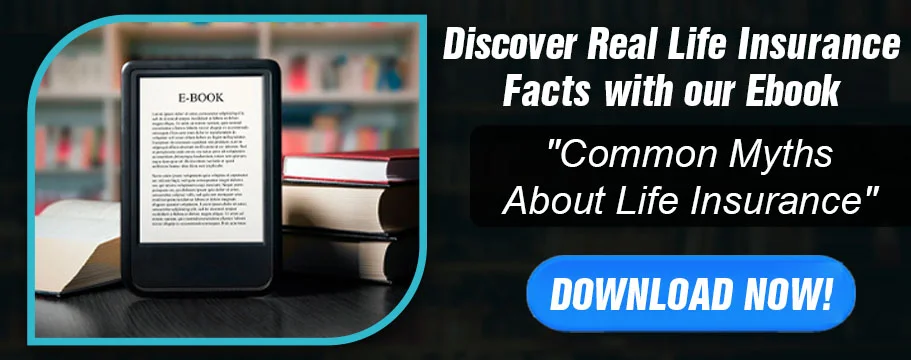The technical term for selling your Life Insurance Policy is Life Settlement. There are usually two reasons for selling your policy to a third party. Firstly, if you do not need it any longer, and secondly, if you cannot afford to make the monthly premium payments.
The need for holding a life insurance policy is demolished if your beneficiaries have deceased or you’ve made substantial assets for them already. This is a suitable reason for liquidating the whole life insurance policy.
Usually, the premium monthly payments are on the higher side, for insurance with reputable companies. So it is a wise decision to sell off your insurance policy if it is becoming difficult for you to afford the premium payments.
Selling off your insurance policy is a complicated process that requires informed and sensible decision-making. Most often, it pays off lesser than the costs one bears, in this process. Here is a complete guide to running the process smoothly and with proper research.
Let’s get started with the pros and cons of selling off your life insurance policy to a third party.
How to Sell Your Life Insurance Policy?
First of all, one has to research numerous broker settlement companies online. Read their reviews and conduct short interviews with many available brokers. Ask various questions such as How much do you charge as a commission fee? Are you licensed in my state? How many such successful cases did you handle before me? How does your commission structure work? What is your fee?
Once you’ve finalized your broker, let them bring buyers/ investors to you. Multiple investors will lay out their bids to you. Do not rush to avail the first offer. Take your time and choose the best offer. This can take from a month to a couple of months time period.
Now that you’ve selected the buyer, you get lump-sum cash in exchange for transferring the ownership of your life insurance policy to the buyer. On the death of the policyholder, his dependents or beneficiaries will receive nothing. Instead, the investor will retrieve the full monetary value of the death benefits.
Who is most likely to sell their life insurance policy?
Many factors determine how much the probability of selling your life insurance policy actually is. The ones that matter most include:
Age
You’re more likely to sell a life insurance policy if you’re 65 years old or more. Similarly, you can sell your policy even if you’re younger than 65 years but diagnosed with some fatal illness. Buyers are tempted towards policyholders expecting an earlier death.
Health
Policyholders with serious health concerns usually sell it off easily since investors deem their death nearer. With a sooner demise, the buyer can get the death benefit payout and has to pay a lesser number of premium payments.
Policy Value
Life insurance policies that have a policy value and death benefits of more than $100,000 usually have more demand. For a policy value lesser than this, it is almost impossible to sell their life insurance policy.
Policy Type and Duration
Whole Life and Permanent Life insurance policies are more prone to being sold off. Term Life and Universal Life Insurance also get sold but they rarely reap any real monetary benefits. Instead of selling the Term Life Insurance policy, it is better to surrender it. Let your Term life policy lapse or increase its coverage.
How Much Does Life Isurance Cost?
Reputed Insurer Company
Your life insurance will be valued more if it is acquired from well-reputed firms such as A.M. Best or Standard & Poor’s. Reputation implies that your insurer has been in the field for decades and adds trust on the part of the buyer.
Life Expectancy
Terminally ill old people with a life expectancy of 2 years or less are more viable for sales of their life insurance policy. Investors are seeking policyholders that could expire soon because this reduces their number of outstanding monthly premiums. And they get the death benefits in less than 2 years.
Pay Out Benefit
The life insurance policy with a payout benefit above $ 100,000 gets sold to third-party investors in secondary markets, mostly. Obviously, the policy that offers a lesser cash amount from the death benefits, is less profitable for the buyers. All investors and buyers are looking for the most profitable deals.
Pros and Cons of selling life insurance policy
Analyzing the Pros and Cons of Selling a Life Insurance Policy:
Pros
- Suitable for Specific Circumstances: Commercial life insurance policies are ideal for people who do not need premiums or cannot afford premiums. It offers new and interesting solutions for those facing serious money problems or changing facts or conditions.
- Instant lump sum: The main advantage is that large one-time payments can be received quickly. This immediate cash flow can be extremely valuable in meeting urgent financial needs or investments.
- Relief from monthly premiums: Selling a plan removes the heavy load of monthly payments. This financial stability can significantly reduce the financial stress on policyholders.
- Right to self-insurance: Go head from the sale of policies, although taxable, provide the right to self-insurance. With a one-time deposit, people can create their own safety net that meets different financial obligations or investments depending on their needs.
Cons
- Compensation discount: Sellers often receive only a fraction of the true value of the original plan, usually 20-25%. For example, a $100,000 insurance policy may only realize $25,000 when sold. This discount is a big problem.
- Higher value in death benefits: When the policyholder holds an insurance policy, the beneficiaries receive far more cash value in the form of death benefits This capital is lost in the sale of the policy, affecting them beneficiary financial security.
- Higher broker commissions: Brokers play an important role in finding investors and helping sales. However, they charge high fees for their services, reducing the overall income of the insured.
- Tax-exempt income: Income from a lifetime regular payment is tax-exempt, which means taxes must be paid immediately, reducing disposable income
Tips to sell your life insurance policy?
- Gather all relevant life insurance policies and medical documents, beforehand.
- Research many broker options and make an informed decision.
- Shop and select with sensible decision-making, and get the best-reputed broker.
Can you sell your Life Insurance Policy if you’re under 65 years?
The probability of landing a sale with a suitable investor for your life insurance policy is more probable if you are aged above 65 or ideally 70 years. This reduces your life expectancy and is beneficial for investors. However, people diagnosed with serious medical conditions are most likely to be able to find a good buyer. Young people also have a high probability in case they’re terminally ill.
It’s not a sensible or profitable venture to sell a life insurance policy but it is recommended for two types of policyholders. Ones who have lost their dependents in an accident before their own death. Or secured their financial future with other assets like property, estate, or mortgage. Secondly, the people who are unable or unwilling to keep up their monthly premium charges. If these two types of people sell it off, it’s a wise decision.
Conclusion
It’s a complicated process so try to find the best broker firm, suitable for your particular case. Instead of selling off your life insurance, look for better alternatives with the insurer firm if possible. Try to reduce your coverage, or borrow some amount from the accumulated amount, till that time.
The costs for researching a broker and getting medical records in place are quite high. Try to modify the policy, because the lump-sum cash from selling it is taxable and the death benefits payout is completely lost to the investor.

Expert Life Insurance Agent and health insurance agent
Dylan is your go-to guy for life and health insurance at InsureGuardian. He’s helped over 2,500 clients just like you figure out the best insurance plans for their needs. Before joining us, Dylan was sharing his expertise on TV with Global News and making a difference with various charities focused on health. He’s not just about selling insurance; he’s passionate about making sure you’re covered for whatever life throws your way.






